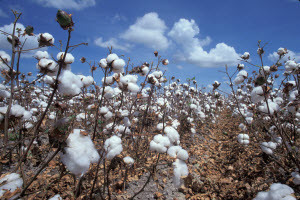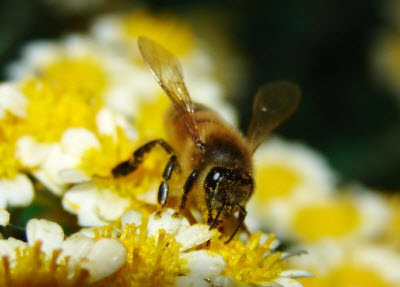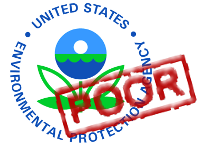A new army of out-of-control herbicide-resistant weeds has many farmers across agricultural states returning to the very same practices that the chemical “miracle” was supposed to eliminate. Our in depth look at the emerged battleground and solutions.
|
|
|||
|
A bill that waters down EPA protections of the Clean Water Act is recommended for consideration by the House as a whole. This is one of several Republican sponsored bills aimed at reducing EPA powers. At least one African government petitioned to include the paraquat herbicide formulation in the Annex III of the Rotterdam Convention. This could have far reaching consequences for the export of the herbicide. The latest stories: Organic pest management proven to be better than pesticides. Chemical farming interests boost anti-pesticide message. GE tree trials continue. Why do we need GM potatoes? GM contamination lawsuits. Personal story about becoming a locavore. And more. Recent research from USDA points to a correlation between a fungus and a family of viruses that may be working together to cause the Colony Collapse Disorder in honeybees. Many still believe, however, that other causes such as pesticide use in agriculture and GMOs that produce pesticides, also play a role in the collapse. EPA has announced plans to place additional limitations on the use of three N-methyl carbamate pesticides – carbaryl, carbofuran and methomyl – to protect endangered and threatened salmon and steelhead in California, Idaho, Oregon and Washington, in compliance with the Endangered Species Act. The decision comes after manufacturers of the chemicals diazinon, malathion and chlorpyrifos refused to adopt the limits voluntarily. The British Beekeepers’ Association is moving away from cash sponsorship deals with pesticide manufacturers after concerns that the chemicals may be harmful to bees. The Association is looking for other sources of funding. According to TimesOnline, bee numbers in Britain are down 54 per cent in 20 years. Industry bias, lax scientific standards, exemption of food crops containing pesticides from registration requirements, and failure to independently monitor GM crops after approval, are among the regulatory problems exhibited by the EPA when it comes to regulating GMOs. |
|||
|
 |
|||


